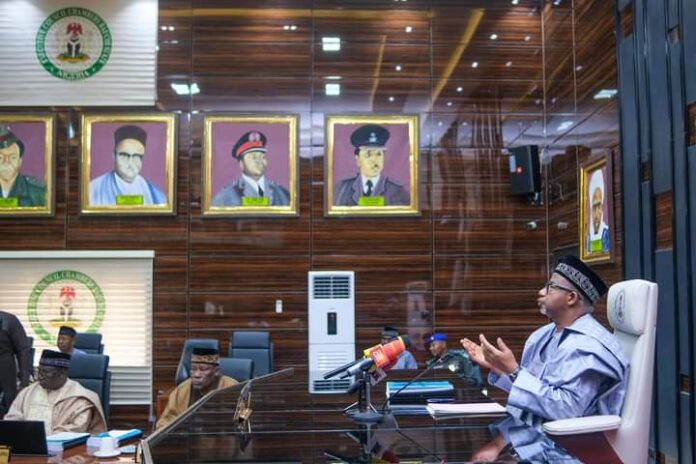From Mohammed Nasir Shuaibu BAUCHI
Bauchi State Governor, Senator Bala Abdulkadir Mohammed has formally presented the 2025 fiscal year budget proposal to the Bauchi State House of Assembly, urging lawmakers to ensure its swift approval.
The proposed budget, tagged “Budget of Consolidation and Sustainable Growth and Development”, is valued at over ₦465,085,248,317.12 billion has been budgeted for capital and recurrent services during the 2025 fiscal year.
According to Governor Mohammed, the primary focus will be on completing ongoing projects, with new initiatives only considered when absolutely necessary.
The budget also incorporates key priorities such as the implementation of the new minimum wage and the Bauchi State Contributory Pension Scheme, designed to address outstanding gratuities owed to retired civil servants.
In terms of allocation, N182,743,925,931.60 representing 39% of the budget is earmarked for recurrent expenditure, while N282,341,322,385.52 representing 63% is dedicated to capital projects. Which is also representing 60.7% of the total budget. While the 2025 budget is higher than 18% of last year budget presented.
Governor Bala highlighted plans to tackle pressing challenges in critical sectors, including infrastructure, education, healthcare, agriculture, youth and women empowerment, and road construction.
He expressed appreciation to members of the State House of Assembly for their continued support and urged them to expedite the budget’s passage to sustain the progress of his administration.
Reflecting on the 2024 budget, the governor reported an implementation rate of 85% and assured that the 2025 budget would be executed effectively to improve the lives of Bauchi residents.
The Speaker of the Bauchi State House of Assembly, Rt. Hon. Abubakar Y. Sulaiman, commended Governor Bala for adhering to the January-December budget cycle.
Suleiman assured that lawmakers would prioritize the speedy consideration and passage of the budget to ensure sustainable growth and development.
Our correspondent reports that social and economic sectors got the highest allocation of N219, 506,601, 771.75 repenting 15. 04% and N166, 098,829, 366.96 representing 20%.







